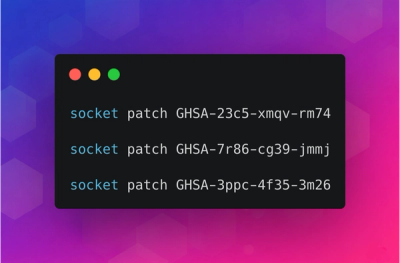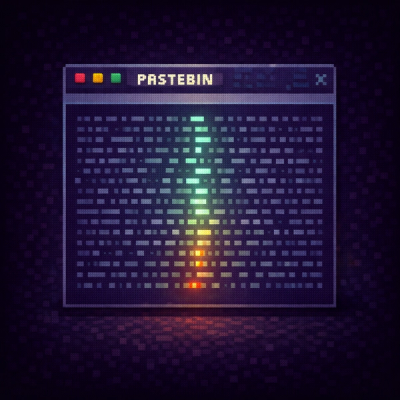
Security News
minimatch Patches 3 High-Severity ReDoS Vulnerabilities
minimatch patched three high-severity ReDoS vulnerabilities that can stall the Node.js event loop, and Socket has released free certified patches.
python-gvm
Advanced tools

The Greenbone Vulnerability Management Python API library (python-gvm) is a collection of APIs that help with remote controlling Greenbone Community Edition installations and Greenbone Enterprise Appliances. The library essentially abstracts accessing the communication protocols Greenbone Management Protocol (GMP) and Open Scanner Protocol (OSP).
The documentation for python-gvm can be found at https://greenbone.github.io/python-gvm/. Please always take a look at the documentation for further details. This README just gives you a short overview.
python-gvm uses semantic versioning.
Versions prior to 26.0.0 used calendar versioning.
Please consider to always use the newest releases of gvm-tools and python-gvm.
We frequently update these projects to add features and keep them free from bugs.
[!IMPORTANT] To use
python-gvmwith GMP version of 7, 8 or 9 you must use a release version that is<21.5. In the21.5release the support of these versions has been dropped.
[!IMPORTANT] To use
python-gvmwith GMP version 20.8 or 21.4 you must use a release version that is<24.6. In the24.6release the support of these versions has been dropped.
Python 3.9 and later is supported.
You can install the latest stable release of python-gvm from the Python Package Index using pip:
python3 -m pip install --user python-gvm
from gvm.connections import UnixSocketConnection
from gvm.protocols.gmp import GMP
from gvm.transforms import EtreeTransform
from gvm.xml import pretty_print
connection = UnixSocketConnection()
transform = EtreeTransform()
with GMP(connection, transform=transform) as gmp:
# Retrieve GMP version supported by the remote daemon
version = gmp.get_version()
# Prints the XML in beautiful form
pretty_print(version)
# Login
gmp.authenticate('foo', 'bar')
# Retrieve all tasks
tasks = gmp.get_tasks()
# Get names of tasks
task_names = tasks.xpath('task/name/text()')
pretty_print(task_names)
For any question on the usage of python-gvm please use the Greenbone Community Forum. If you found a problem with the software, please create an issue on GitHub.
This project is maintained by Greenbone AG.
Your contributions are highly appreciated. Please create a pull request on GitHub. For bigger changes, please discuss it first in the issues.
For development you should use poetry to keep you python packages separated in different environments. First install poetry via pip
python3 -m pip install --user poetry
Afterwards run
poetry install
in the checkout directory of python-gvm (the directory containing the
pyproject.toml file) to install all dependencies including the packages only
required for development.
The python-gvm repository uses autohooks to apply linting and auto formatting via git hooks. Please ensure the git hooks are active.
poetry install
poetry run autohooks activate --force
Copyright (C) 2017-2025 Greenbone AG
Licensed under the GNU General Public License v3.0 or later.
FAQs
Library to communicate with remote servers over GMP or OSP
We found that python-gvm demonstrated a healthy version release cadence and project activity because the last version was released less than a year ago. It has 4 open source maintainers collaborating on the project.
Did you know?

Socket for GitHub automatically highlights issues in each pull request and monitors the health of all your open source dependencies. Discover the contents of your packages and block harmful activity before you install or update your dependencies.

Security News
minimatch patched three high-severity ReDoS vulnerabilities that can stall the Node.js event loop, and Socket has released free certified patches.

Research
/Security News
Socket uncovered 26 malicious npm packages tied to North Korea's Contagious Interview campaign, retrieving a live 9-module infostealer and RAT from the adversary's C2.

Research
An impersonated golang.org/x/crypto clone exfiltrates passwords, executes a remote shell stager, and delivers a Rekoobe backdoor on Linux.